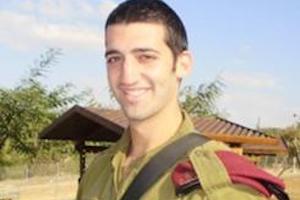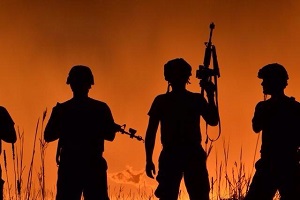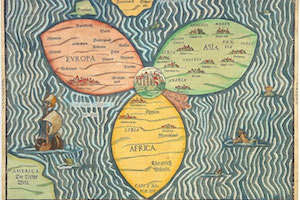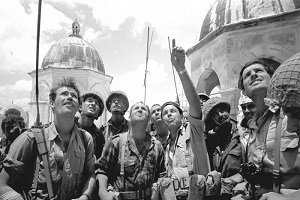Answering a different call: Americans who fight for Israel
Jul 30, 2014
(CNN) -- Daniel Flesch, then a college student at the University of Illinois, had heard too much anti-Israeli sentiment.
He had family members who had survived the Holocaust and felt compelled to fight back at what he perceived as a growing level of anti-Semitism in America. So in 2010, he joined Israel's military.
"I just didn't want to sit on the sidelines," the now-26-year-old said in an interview via Skype. "I wanted to actually fight back against those who think Israel and the Jewish people should not exist."
Flesch, now a graduate student at Johns Hopkins School of Advanced International Studies in Washington, became what's known as a "lone soldier" -- a citizen from another country who joins the Israel Defense Forces (IDF).
It's believed there are approximately 750 Americans currently serving in the Israeli military, according to the New York-based Friends of IDF. The group raises funds for the cultural, recreational and social needs of Israeli soldiers.
Although there are no firm numbers of those who have signed up in recent days, the interest level of Americans seems to have increased amid the escalating conflict between Israel and Hamas, according to Orit Mizner, southwest regional director for Friends of Israel Scouts, an organization that helps North American Jews stay connected to Israel.
"Those kind of phone calls keep on coming. ... There's definitely a sense of the need to be in Israel and a need to take part in what's going on," said Mizner, whose organization runs a program called Garin Tzabar, which helps facilitate Americans' entry into the IDF.
Americans have been serving in the IDF for decades. Israel requires that its citizens serve in the military when they turn 18 -- three years for men, two years for women. Young Americans with dual citizenship living in Israel are required to serve as well.
Those outside Israel, whether they hold Israeli citizenship or not, can apply for the IDF if they meet requirements including no criminal record, a high school diploma and the ability to speak Hebrew.
The U.S. government doesn't discourage those wanting to join, but some may question why those willing to put themselves in harm's way would choose the IDF as opposed to the American military.
"As much I'm a proud American," said David Meyers of Belmont, California, "there's an incredibly deep and long connection that I have to Israel."
Meyers, who now works in sales in Silicon Valley, holds dual U.S.-Israeli citizenship.
"The United States with its strength and size, perhaps, isn't quite needing your abilities and your efforts," he said, explaining his choice to spend six years in the Israeli navy.
His Israeli-born comrades sometimes expressed puzzlement over his decision to leave the comforts of American life for the dangers of military service, he said.
"They sometimes scratched their heads when they see people coming from other countries," said Meyers, who served in the Israeli navy in the late 1980s and early '90s. But he added that he was warmly embraced.
There is no other rational explanation because the fixation with, and the hatred of, Israel are not rational. Israel is a particularly decent country. It is tiny — about the size of New Jersey and smaller than El Salvador; and while there are more than 50 Muslim countries, there is only one Jewish one.
She should be admired and supported, not hated to the extent that there are dozens of countries whose populations would like to see Israel annihilated — again, a unique phenomenon.
No other country in the world is targeted for extermination.
Flesch, who is not an Israeli citizen, served more than 18 months. He became a paratrooper in the Israeli army and was recognized twice as the outstanding soldier of his platoon.
His proudest achievement: "That I'd done my part to defend the Jewish people (from) those who tried to harm us throughout the years."
Read the full article here.







